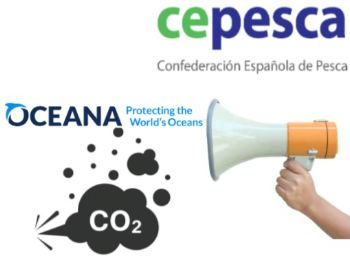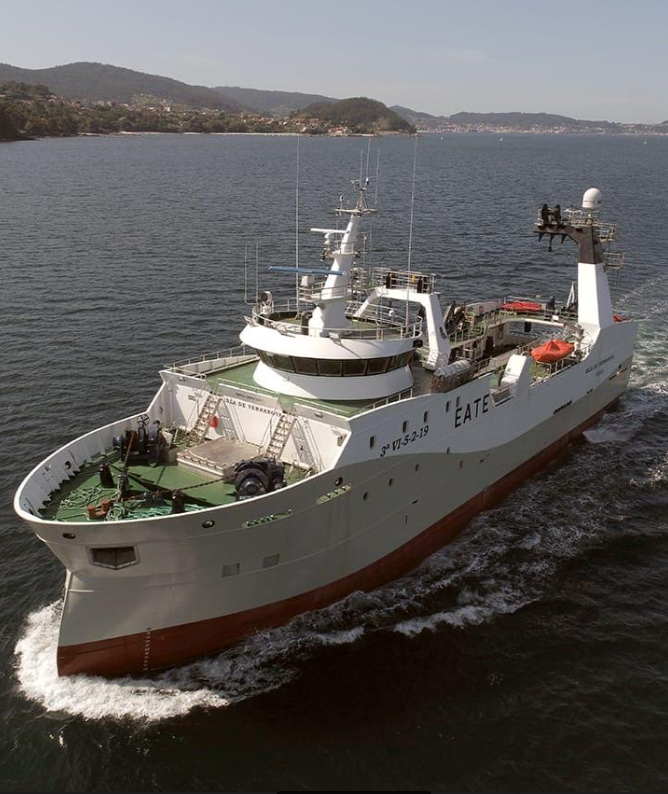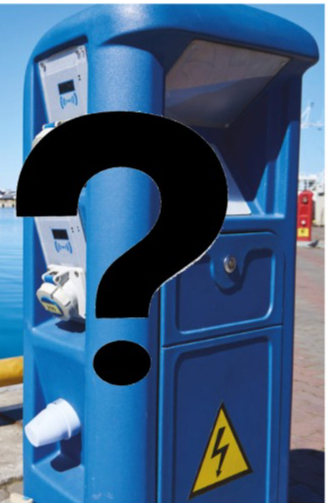|

'...addressing the decarbonisation of the Community fleet in an effective and objective manner requires analyzing the real possibilities of using gree
The fishing sector describes the document made public today by OCEANA as absurd and imprecise
 EUROPEAN UNION EUROPEAN UNION
Thursday, February 02, 2023, 01:20 (GMT + 9)
- According to the sector, it demonstrates, once again, the "profound" ignorance of the complexity of its activity, both from a social and economic point of view, and warns about the consequences for consumers of the progressive environmental radicalization of this type of groups , present in the European institutions
 The fishing sector, represented by the Spanish Fisheries Confederation (CEPESCA), describes as absurd and imprecise the document "A way to decarbonise the fishing sector by 2050", made public today by Oceana. In the opinion of the fishermen, the report demonstrates, once again, their "profound" ignorance of the reality of a highly complex sector, both from a social and economic point of view, and warns about the consequences it may have on European citizens the progressive environmental radicalization of this type of groups, present in the European institutions and whose sole objective, in the case of fishing, he points out, is the eradication of European fishing activity.
In this sense, the sector states that fishing is a global activity and that a progressive weakening of the European fishing capacity and potential will cause fish to become a luxury food for privileged population groups and will leave it in the hands of countries third parties, basically Asians, the supply of this protein for the rest of the population, coming, curiously, from uncontrolled fisheries and outside of any type of regulation, both environmental and social.
In the opinion of the sector, the report presented today, far from rigorously defending the challenge of decarbonising the European fishing fleet and relying on the advice of experts and scientists, makes a simplistic approach, generalizing the reality of this activity and without taking into account account the work, efforts and achievements that the fishing sector itself has already achieved in this area.
In addition, and according to the sector, the document clearly reflects its strategy, "in which it has been investing several million euros in recent years", of demonizing fishing gear such as bottom trawling and "selling" the benefits of Marine Protected Areas (AMP).
.png) According to Javier Garat, Secretary General of Cepesca and President of Europêche, “Europe is a coexistence project that is characterized by accommodating a multitude of sensitivities, but to achieve it, intelligence and knowledge are necessary, regardless of common sense. Therefore –adds Garat–, we trust in the little weight that approaches such as those presented in this document should have in the European project”. According to Javier Garat, Secretary General of Cepesca and President of Europêche, “Europe is a coexistence project that is characterized by accommodating a multitude of sensitivities, but to achieve it, intelligence and knowledge are necessary, regardless of common sense. Therefore –adds Garat–, we trust in the little weight that approaches such as those presented in this document should have in the European project”.
Thus, and as stated by the sector by way of example, the graphs of consumption per liter can only be qualified as "absurd", invalidating any subsequent development because the fisheries are very specialized and each one is aimed at certain species in specific fishing grounds, with yields different and specific fishing techniques. Therefore, the sector points out, it makes no sense to try to compare them directly from a single point of view.
On the other hand, the sector recalls that it has already significantly reduced its emissions since 1990, as it published in a document on the decarbonization of the fleet. In fact, and according to the data analyzed and communicated by the EU since the signing of the Kyoto Agreement in 1992, the sector has reduced greenhouse gas emissions by almost half compared to those of 1990, the base year for the agreements on climate change.
The fleet has also reduced the power of the engines by an average of 59% compared to that same year and the new technologies applied have allowed a continuous growth in their energy efficiency (proportional ratio of the fuel used to make their catches).
In addition, the sector also points to the permanent reduction of the European fleet, which currently has 65,000 vessels in operation (75% with less than 12 meters), compared to 81,600 in 2018 and 103,800 in 1996. In this sense, it draws attention to a fact Logically, the Oceana report converts it into an attack: the Spanish fishing fleet is the most fuel-consuming since it is the most important in the EU as a whole, both in terms of capacity (GTs) and catches.
Regardless of this reality, the sector regrets that the report does not take into account that it has been working for years and implementing new technologies for the energy optimization of its activity, both in terms of the design and materials of fishing gear, as well as for the Digitization of processes such as, for example, the use of Artificial Intelligence (AI) to improve route planning that allows fuel savings of up to 8%, and a similar percentage of CO2 emissions into the atmosphere. The sector believes that these improvements, born at the request of the fishermen themselves, could be the starting point to address a transformation in energetics of the fishing activity compared to approaches far from reality.
The EC should create a Committee of experts
 As the sector has explained to the European Commission (EC), addressing the decarbonisation of the community fleet in an effective and objective manner requires analyzing the real possibilities of using green fuels and carbon-neutral energy sources in fishing vessels. This must be done taking into account factors such as the current technological development of these fuels, the existence of supply infrastructure, the financing to address these changes, safety on board or the need to modify the size of the vessels to accommodate new forms of propulsion. . In fact, and according to the sector, reality indicates that the day technological developments yield results and new energy sources become available, it will be necessary to build new ships in order to use them.
In this regard, the sector considers that the current vessel capacity limitations set by the Common Fisheries Policy (CFP) hinder this objective and are inconsistent with the EU strategy to address this energy transition. Defining the energy transition strategy for the fishing and aquaculture sector, which is scheduled for the end of 2023, also requires specifying the reference year to measure reductions properly, as well as considering fuel savings and, consequently, emission reductions (between 5% and 50%, he points out) that implies the optimization of fishing management. For all these reasons, the sector requests the EC to create a group of experts (scientists, marine engineers and industry experts) to advise on the different alternatives available and identify the best ones for each gear, fishing ground and fleet segment.
This group, about which the sector wonders why it was not set up years ago by the EC, will have to resolve and recommend which paths to choose given the fact that the fuels of the future that are being talked about (hydrogen, ammonia, methanol, LNG or electricity) are not produced or transported in sufficient quantity today, nor are they distributed in ports and cannot be used on current ships. In fact, previous estimates indicate that the new ships would need 40% more GT (gross tonnage) to be able to store them, and some of them are dangerous and produce derivatives that are toxic and damage the layer ozone (greenhouse gases).
Finally, it should be noted that Cepesca has been part of the Platform for the Promotion of Ecofuels for several months now, together with many other sectoral organizations and companies, in order to promote biodiesel, a renewable, clean fuel of natural origin, already used in land, sea and air vehicles. This eco-fuel considerably reduces emissions, since the CO2 captured in the industrial generation process is offset by that produced in combustion, so its net emissions are zero.
Source: CEPESCA
Related news:
|
|



